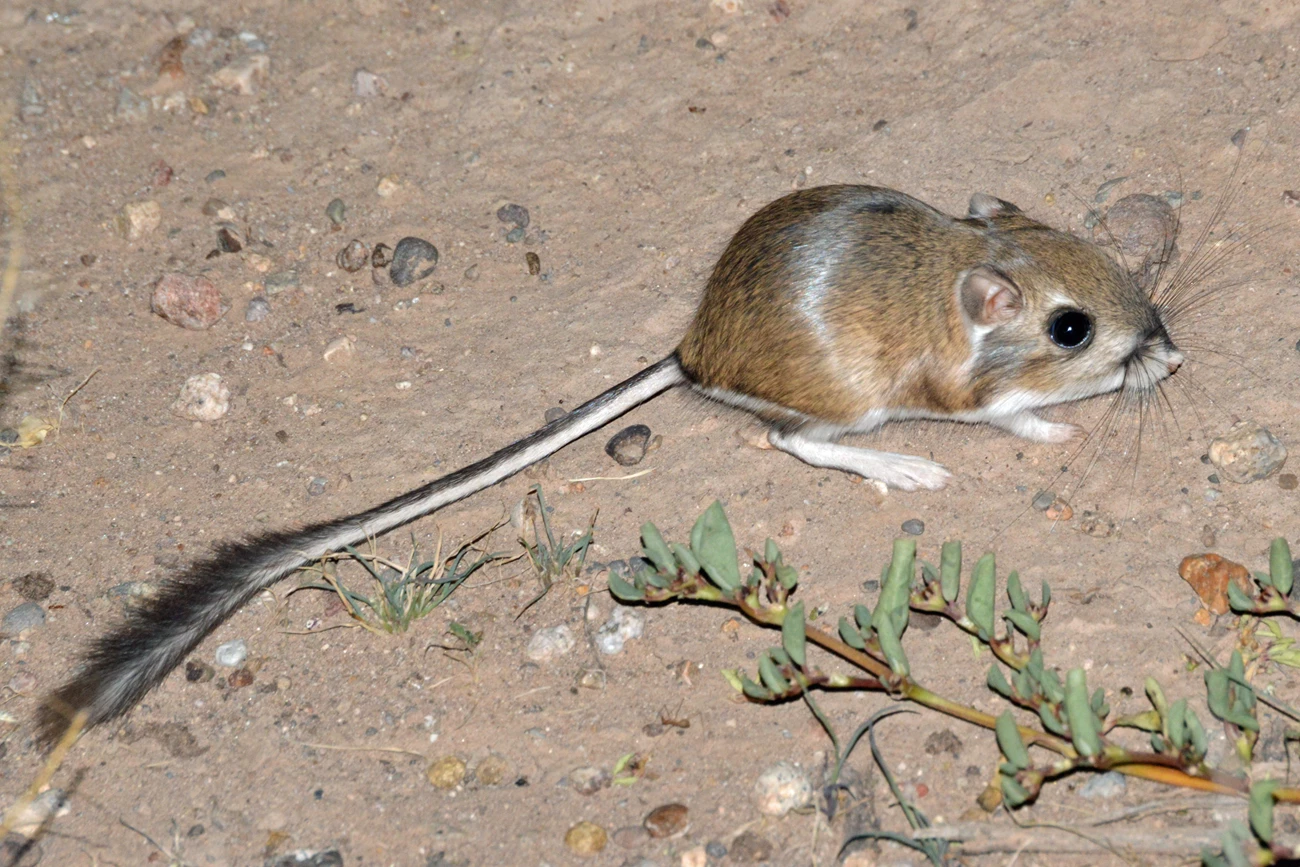
NPS photo 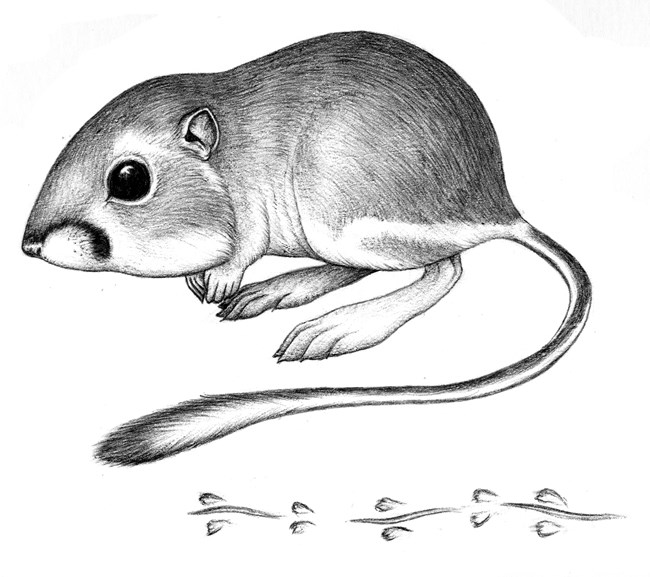
NPS image/Alexander, Byron Who are They?Despite its name and mouse-like appearance, the Kangaroo rat is neither a rat or a mouse. The Kangaroo rat is a member of the heteromyidae family, with its closest relative being the pocket gopher. Kangaroo rats have long tails and larger hind feet with only four toes. Their eyes are very large, while their ears are incredibly small. Kangaroo Rats are small, weighing up to 4.5 ounces, which is about the weight of granola bar. Their fur is a yellowish-brown with a white belly, while the tail has a noticeable white tip. Kangaroo rat tend to live in the desert flatlands, creosote flats, and the sandy soils of the desert washes. The rats burrow into the soil to better survive the sometimes harsh desert environment. Kangaroo rats are mostly seed eaters, eating mostly mesquite beans and grass seeds. Occasionally the Kangaroo rat can be seen eating small insects. Kangaroo rats will forage and collect seeds at night, storing seeds and beans in their cheek pouches. Extra seeds are stored in their burrows where the seeds can absorb up to 30 percent more moisture. 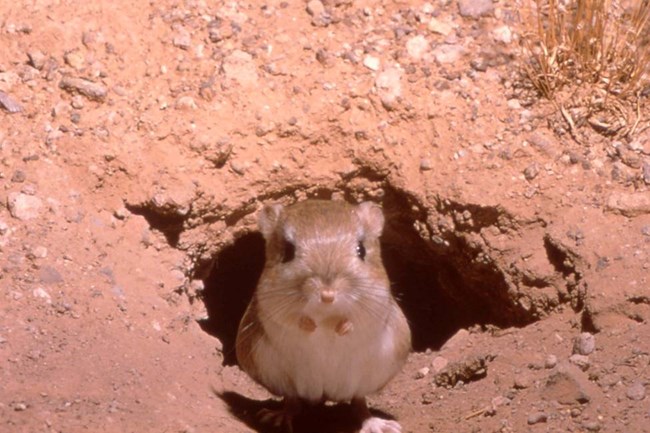
NPS photo How many different species are there?There are a handful of kangaroo rat species in the Sonoran Desert. The most commonly encountered one at Organ Pipe Cactus is Merriam’s kangaroo rat. You may notice some smaller kangaroo-rat-like rodents called pocket mice. It’s hard to tell exactly who you’re looking at if you only get a brief glance, but pocket mice are generally the smallest, at about the size of a Brussels sprout. Kangaroo rats are about palm-sized. Packrats, who are not closely related, but found in the same area are fairly large, at about the size of a large orange or small grapefruit. 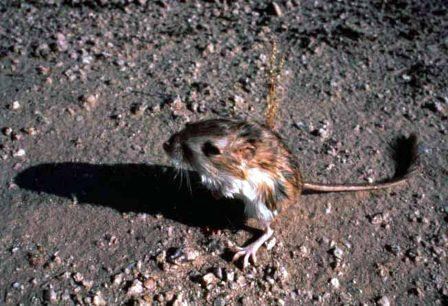
NPS Photo Evolved for the DesertKangaroo rats are masters of desert survival. Their bodies adapted to reduce the amount of water needed and the amount of water that is lost. Although a kangaroo rat's diet is mostly consists of dry seeds, it has almost no need for liquid water. Instead, they survive almost entirely by transforming fats from the seed into water through digestion. Kangaroo rats can extract a half gram of water out of every gram of seeds consumed — thats about one drop of water for every two seeds! Their kidneys concentrate their urine to an almost crystal-like consistency, so that very little water is lost through waste. 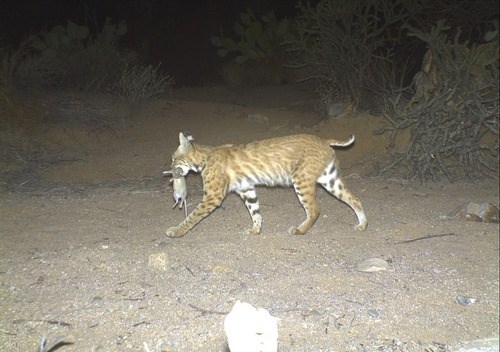
NPS photo Agile Rodents of the DesertKangaroo rats have adaptations that allow them to detect and escape predators easily. |
Last updated: October 6, 2023
